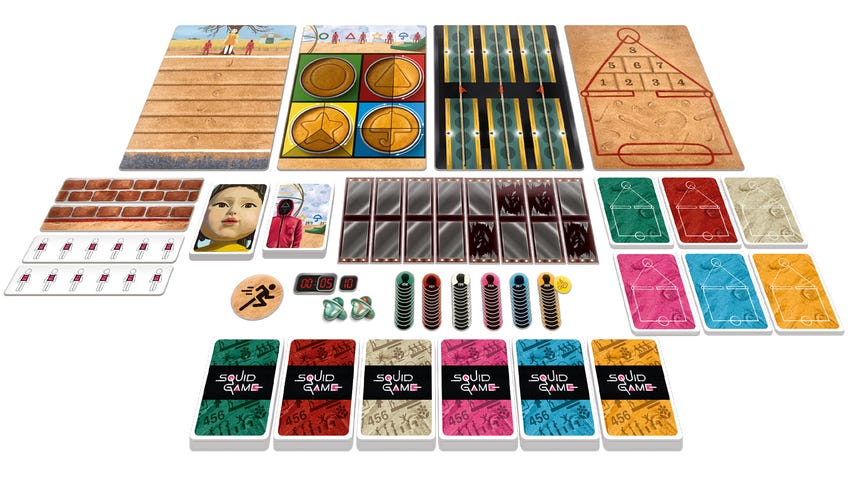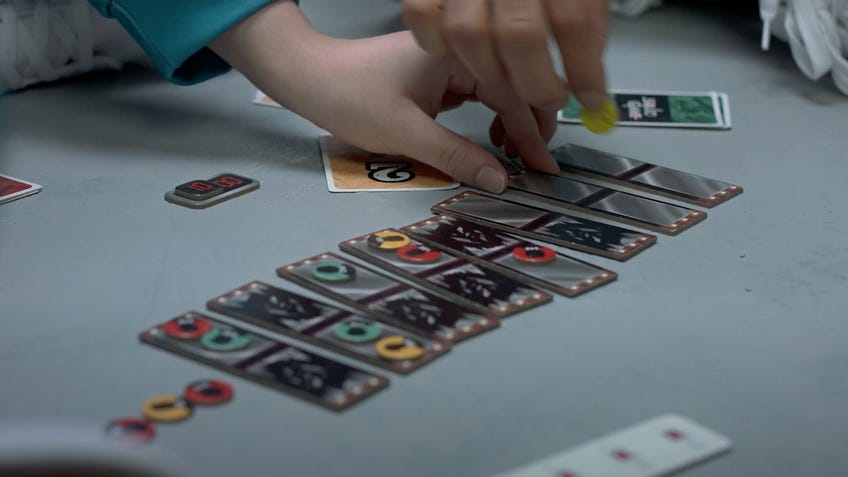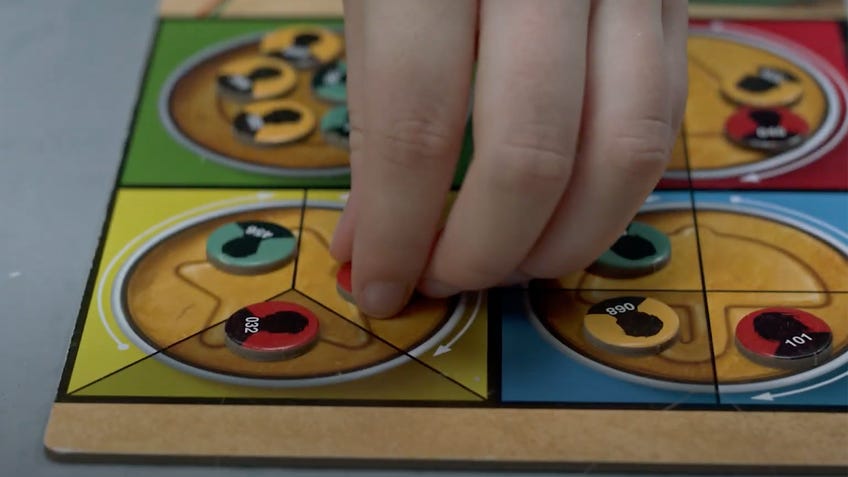Surprise, surprise, the Squid Game board game sucks
Tug of Bore.
In case you missed it, Squid Game is being turned into a board game. That’s right: the popular Netflix series based on a series of traditional Korean playground games and satirising modern-day capitalism has spawned a tabletop adaptation that boxes up said playground games and sells them for $25. Irony, truly, isn’t dead.
You may not be surprised to hear that the Squid Game board game is not very good. We played a copy of the new release at this year’s Gen Con, putting ourselves through its gauntlet of challenges so you don’t have to. Please, don’t.
The Squid Game board game takes the trials seen in the Netflix series (which, again, are popular children’s games playable in real life for free, or at minimum expense) and turns them into a collection of minigames that use decks of cards, cardboard tokens and boards to replicate the deadly winner-takes-all competition.

Rather than controlling a single competitor, the Squid Game board game overcomes the low life expectancy of its contestants by handing each of up to six players a group of doomed hopefuls, represented by little numbered tokens. If one of your tokens makes it through all six tests, you win. To help you along and avoid player elimination, each round will give you an extra recruit.
The Squid Game board game overcomes the low life expectancy of its contestants by handing each of up to six players a group of doomed hopefuls.
The roughly 45-minute game is a run through all six setpieces seen in the Netflix show, starting with the instantly iconic Red Light, Green Light and its deadly doll. In an experience that sets your expectations for the rest of the game, it’s a basic game that relies mostly on luck. You play a numbered card to creep forward towards the doll - and survival - before drawing a card from the doll’s deck. If your number matches the number on the doll’s card, your contestant is instantly killed and eliminated, being replaced next round by another token. Players can instead choose to freeze and push an opponent forward to potentially take them out. Live or die, the turns rinse and repeat until the game’s ‘timer’ - ticked down by exhausting the doll’s deck - hits zero.
The glass bridge works in a similar way, with the added chance factor of flipping tiles to see which tokens plummet to their death. Meanwhile, Tug of War is a straightforward highest-number-wins battle where players commit their cards to participants on each side - eliminating everyone on the low-scoring side.
The marbles minigame, arguably the closest to being an existing tabletop game without any need of translation, becomes a shoddy combination of odd-or-even guessing game and dexterity game in which players must choose to hide one or both marbles in their hand or throw their marble - represented not by an actual marble, but two cardboard circles clumsily slotted together - furthest on a cardboard wall without going past the line.
Despite offering a box full of different pieces and half a dozen ‘unique’ challenges, the Squid Game board game forgoes creativity in favour of mundanity.
The most promising - or should that be least disappointing? - of the bunch is the tense shape-stabbing dalgona challenge, which here becomes a push-your-luck game not unlike blackjack. Players choose to keep drawing cards to progress their tokens around each of the candy shapes - from the simple circle to the nerve-wracking umbrella and star - but must decide to stop before they draw a crack card, which eliminates one of their pieces.
Even the climactic Squid Game is a simplistic rock-paper-scissors race to reach the head of the playground ‘squid’ without being stabbed - which can be avoided by blocking - or pushed outside of the square for instant elimination. It uses a separate deck of cards from the previous games, but fails to feel notably different in execution.

None of the games last particularly long, but they feel interminable due to the dull translation and repetitive gameplay. Despite offering a box full of different pieces and a selection of half a dozen ‘unique’ challenges, the Squid Game board game forgoes creativity in favour of mundanity.
The Squid Game board game represents some of the worst aspects of games based on TV series and movies, feeling entirely like a box designed to sell to unsuspecting fans on name power alone. It’s an outcome made all the more disappointing by the Netflix series’ clever spin on folk and children’s games, which could’ve made for an inventive take on group competition and rules-bending. Instead, what we’re left with is another licensed game that feels like a waste of time, money and potential.


